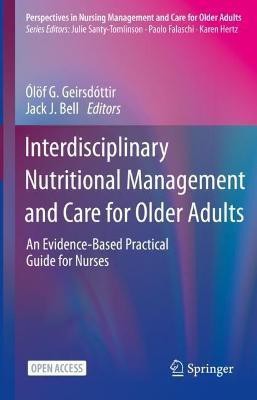Interdisciplinary Nutritional Management and Care for Older Adults(English, Hardcover, unknown)
Quick Overview
Product Price Comparison
This open access book aims to primarily support nurses as leaders and champions of multimodal, Interdisciplinary nutrition care for older adults. A structured approach to fundamentals of nutrition care across Interdisciplinary settings is combined with additional short chapters about special topics in geriatric nutrition. The book is designed to provide highly accessible information on evidence-based management and care for older adults, with a focus on practical guidance and advice across acute, rehabilitation, and primary and secondary malnutrition prevention settings.The cost of malnutrition in England alone has been estimated to be GBP19.6 billion per year, or more than 15% of the total public expenditure on health and social care. ^65 years. The importance and benefit of specialised nutrition care, delivered by experts in field, is well established for those with complex nutrition care needs. However, despite the substantial adverse impact of malnutrition on patient and healthcare outcomes, specialised management of this condition is often under-resourced, overlooked and under-prioritised by both older adults and their treating teams. As an alternative, timely, efficient, and effective supportive nutrition care opportunities may be appropriately implemented by nurses and non-specialist Interdisciplinary healthcare team members, working together with nutrition specialists and the older adults they care for. Practical, low-risk opportunities should be considered across nutrition screening, assessment, intervention, and monitoring domains for many patients with, or at risk of malnutrition. Whilst a variety of team members may contribute to supportive nutrition care, the nursing profession provide a clear focal point. Nurses across diverse settings provide the backbone for Interdisciplinary teamwork and essential patient care. The nursing profession should consequently be considered best placed to administer Interdisciplinary, multimodal nutrition care, wherever specialist nutrition care referrals are unlikely to add value or are simply not available. As such, the book is a valuable resource for all healthcare providers dedicated to working with older patients to improve nutrition care.


